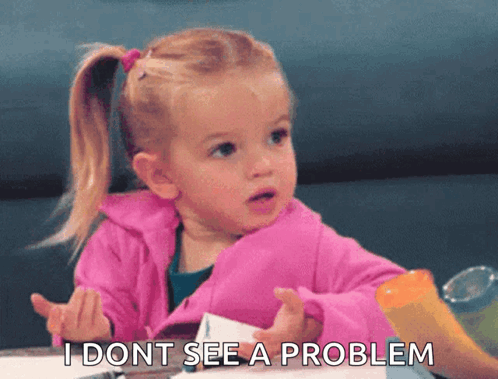When They Don't Know They're the Problem

Dealing with Unconscious Incompetence
Ever feel like you’re losing your mind... over a calendar?
I once opened a project plan I’d built—complete with carefully mapped deliverables and internal due dates—only to find every single task now scheduled on the exact same day as the final publish date.
At first, I panicked. Did I actually do this? Had I assigned the entire workload to the same deadline?
Nope.
My collaborator, bless him, had gone in and “cleaned it up.” He moved every internal milestone to match the final delivery date because, in his words, it was “just easier that way.”
What followed was a tense working session where I had to explain—gently, diplomatically, while internally screaming—that no, work does not magically get done on the day it’s due. And no, moving all the tasks to the finish line does not make them faster to complete.
This wasn’t about laziness. Or malice. Or resistance.
It was about a gap in understanding so deep, the person didn’t even realize what they didn’t know.
And that’s when a lightbulb went off.
Months earlier, I’d been on a sales call where the rep explained a key concept: the goal is to move someone from unconscious incompetence to conscious incompetence—because it’s only once someone realizes they don’t know something that they’re ready to grow, or buy, or change.
I didn’t know it at the time, but that little phrase explained half the tension I’d ever seen on a project team.
It’s the team member who means well, who works hard, who everyone describes as “nice”—but who quietly derails every deadline because they don’t understand the role they’re in.
The problem is, they’re not trying to mess it up.
They just don’t know what they don’t know.
And when leadership doesn’t step in?
Everyone else over-functions to make up the gap.
That’s where I found myself. Doing twice the work. Making political apologies. Stretching my own deadlines to avoid stretching theirs.
That’s when I realized: unconscious incompetence isn’t just a knowledge gap—it’s a leadership challenge.
This one’s tricky.
Someone on your team is missing key skills or awareness—but they don’t realize it. They’re confident. Convincing. Often well-liked. But they’re unintentionally derailing projects, and others are scrambling to make up for it.
It’s not about blame. It’s about awareness.
Let’s work the problem.
You can’t train awareness—but you can build it.
Unconscious incompetence is dangerous because it looks like effort, feels like progress, and rarely triggers alarms—until it’s too late.
🧠 Step 1: Spot the Signs
Unconscious incompetence is subtle—until it’s not. Look for:
- Confident delivery paired with incomplete or low-quality work
- Missed deadlines or confusion about sequencing
- Unawareness of stakeholder needs or downstream impacts
- Peers frequently jumping in to fix or explain things
The key signal? Repeating the same mistakes—without realizing they’re mistakes.
💬 Step 2: Name What You’re Seeing (Tactfully)
Once you spot it, don’t default to doing the work yourself. That creates a pattern of rescue. Instead:
- Pull the person aside privately
- Show them the impact of a recent miss—factually, without judgment
- Ask reflective questions: “What was your understanding of the timeline here?” or “How did you decide on that change?”
Your goal isn’t to embarrass. It’s to surface the gap.
🎯 Step 3: Shift Them Into Awareness
You can’t teach someone who thinks they already know everything. Your job is to:
- Help them see what’s missing
- Normalize the learning curve
- Set a clear path forward
Try this: “There’s a piece of this process that seems unclear—and that’s okay. Let’s walk it through together so we can prevent these last-minute scrambles.”
🛠️ Step 4: Support Without Overfunctioning
It’s tempting to jump in and fix. Don’t. Instead:
- Document expectations in writing (timelines, deliverables, responsibilities)
- Offer scaffolding: templates, meeting check-ins, defined next steps
- Loop in their supervisor if repeated gaps persist
If you’re doing their job for them, you’re not managing—you’re enabling.
🧭 Step 5: Recalibrate Expectations
Some people rise with the right support. Others don’t.
You don’t need to force a transformation. But you do need clarity. Ask yourself:
- Has this person improved after clear feedback and support?
- Is their performance impacting the team’s momentum?
- Do they need a different role—or a different level of oversight?
Sometimes the kindest thing—for everyone—is to stop pretending they’re thriving.
🧩 You Can’t Skip the Awareness Step
Unconscious incompetence is frustrating because it looks like resistance. But often—it’s just a blind spot.
Your job as a leader is to light the path. Not to drag someone down it.
Deep Dive 🛠
Want to strengthen your coaching here? Start here
📘 Book: Radical Candor by Kim Scott -> Read or Listen on Blinkist
One of the best frameworks for direct communication that doesn’t feel harsh.
🎥 YouTube:
✏️ Written by Nic | The Exec Advisor
Helping you lead people, not just manage projects.
✨ You know more than you think. Let’s build from there.




